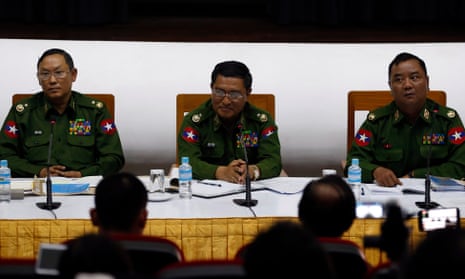Myanmar’s army says it killed 13 ethnic Rakhine fighters in counter attacks, after the well-armed group carried out deadly strikes on police posts earlier this month.
Rakhine state has seen new levels of violence in recent weeks between the Arakan Army (AA) – insurgents fighting for greater autonomy for ethnic Rakhine Buddhists – and security forces.
Many of the battles are taking place in the same region from which more than 720,000 Rohingya Muslims fled to Bangladesh after August 2017, when the army launched a crackdown the UN deemed ethnic cleansing.
The AA are a more formidable force than the fighters claiming to represent the Rohingya and have inflicted historically higher death tolls on the military.
On Myanmar’s independence day on January 4, the AA launched pre-dawn raids that killed 13 police officers and wounded nine before the army stepped in, setting off violence that has displaced thousands.
But the army said it hit back, killing the same number of AA rebels in total in operations from January 5 to 16.
“We got 13 dead bodies of enemies and seized three weapons,” major general Tun Tun Nyi said in a rare press conference in the capital Naypyidaw.
“Some officers and soldiers from our side were killed,” he added, without releasing the figures.
Myanmar’s military almost never provides statistics on casualties suffered in fighting against the country’s myriad ethnic armed groups.
The army called a temporary ceasefire against different insurgents in northern Myanmar last month, but Rakhine state was excluded from the move because of the AA and the Rohingya militant group, which is called the Arakan Rohingya Salvation Army.
The troubled state is a complex patchwork of Rakhine, Rohingya, and other ethnic minorities that intercommunal violence has largely driven apart.
The United Nations special rapporteur for human rights in Myanmar, Yanghee Lee, said that all the minority groups in Rakhine have “suffered enough” and urged the AA and the army to do more to protect civilians as the violence persists.
Most of the Rohingya in the northern part of the state have been pushed into Bangladesh, where they refuse to return to Myanmar without guarantees of safety and citizenship.
The UN Secretary-General Antonio Guterres criticised as “too slow” Myanmar’s efforts to allow their return, describing the lack of progress as a source of “enormous frustration”.
